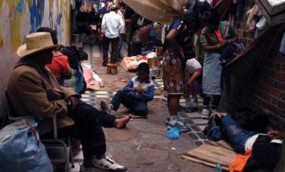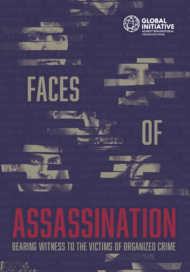Posted on 27 Aug 2014
As part of the ongoing “Development Dialogue” initiative, in April 2014, the Global Initiative against Transnational Organized Crime and the Ministry for Foreign Affairs of the Netherlands co-hosted a seminar in the Hague, which brought together 50 experts from national governments, multi-lateral organizations, think tanks and NGOs working in the development sector. Governments represented were Austria, Denmark, Germany, Mexico, The Netherlands, Norway, Sweden, Switzerland, the United Kingdom, the United States and the European Union.
The objective of the meeting was to serve as a platform to better understand and assess the way that organized crime is engaging with governance, democracy, statehood, human security and development, and by doing so, to understand organized crime increasingly as a challenge relevant to the development sector. By bringing together policymakers, practitioners, and analysts dealing with the challenge of organized crime in a development context, the Global Initiative, in partnership with the Government of Norway, hopes to create a shared community of practice to identify and share best practices in utilising development responses to organized crime.
Under Chatham House rules, the participants shared their experience and insights through a series of presentations, case studies and discussion over two days, exploring the different ways that organized crime was impacting on their work as development practitioners, and trying to collectively identify new analytical tools, leverage points or positive approaches that have had some impact. The meeting was structured around eight key questions, which experts discussed in an effort to draw together thinking and create a common understanding of how the issue of organized crime should be addressed from a development perspective:
- What lessons have been learned from other prevailing issues, such as human security; fragility; terrorism, or others, which can be applied to improving development approaches to organized crime?
- How does changing our analytical frameworks help us to better understand organized crime and its impact on development objectives or improve our response?
- How do we protect and isolate the democratic process from the infiltration of organized crime?
- How should organized crime be promoted with the development community? As an issue for isolating, or mainstreaming?
- Is a global strategy required, or do approaches need to be customized to specific geographic regions or crimes?
- What practical steps can be taken to bring security and development actors into closer alignment?
- What are the practical tools that the development community need to address organized crime more effectively?
- How do we bring the need to engage development responses onto the political and policy agenda?
This report summarises the main discussion points and conclusions from the two-day meeting, and identifies the most critical issues moving forward. It is hoped that this report will catalyse and inform in-house discussions within development agencies and organizations and provide a conceptual backdrop for a debate on pertinent policy responses for development actors who seek to engage in effective responses to organized crime. The background paper for the discussion is available here.
[wpfilebase tag=file id=814 /]



